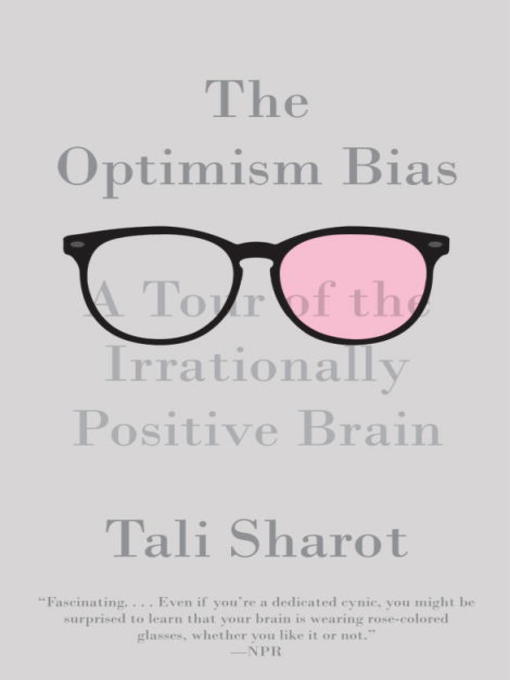Psychologists have long been aware that most people maintain an irrationally positive outlook on life—but why? Turns out, we might be hardwired that way.
In this absorbing exploration, Tali Sharot—one of the most innovative neuroscientists at work today—demonstrates that optimism may be crucial to human existence. The Optimism Bias explores how the brain generates hope and what happens when it fails; how the brains of optimists and pessimists differ; why we are terrible at predicting what will make us happy; how emotions strengthen our ability to recollect; how anticipation and dread affect us; how our optimistic illusions affect our financial, professional, and emotional decisions; and more.
Drawing on cutting-edge science, The Optimism Bias provides us with startling new insight into the workings of the brain and the major role that optimism plays in determining how we live our lives.
- Most popular
- Always Available Classics
- Available now
- New eBook additions
- New kids additions
- New teen additions
- Try something different
- Best Food & Cookbooks
- Are you a Library Book? Cause I'm Checking you Out
- Rainbow Reads
- See all ebooks collections
- Available now
- New audiobook additions
- New kids additions
- New teen additions
- Most popular
- Try something different
- Rainbow Reads
- See all audiobooks collections
- Travel & Outdoor
- Home & Garden
- Food & Cooking
- Health & Fitness
- Sports
- Celebrity
- News & Politics
- Fashion
- Culture & Literature
- Tech & Gaming
- Art & Architecture
- Business & Finance
- Hunting & Fishing
- See all magazines collections



